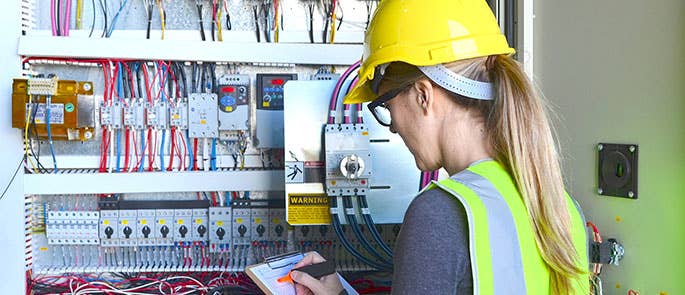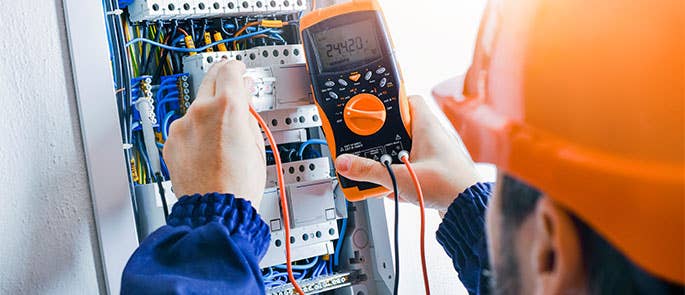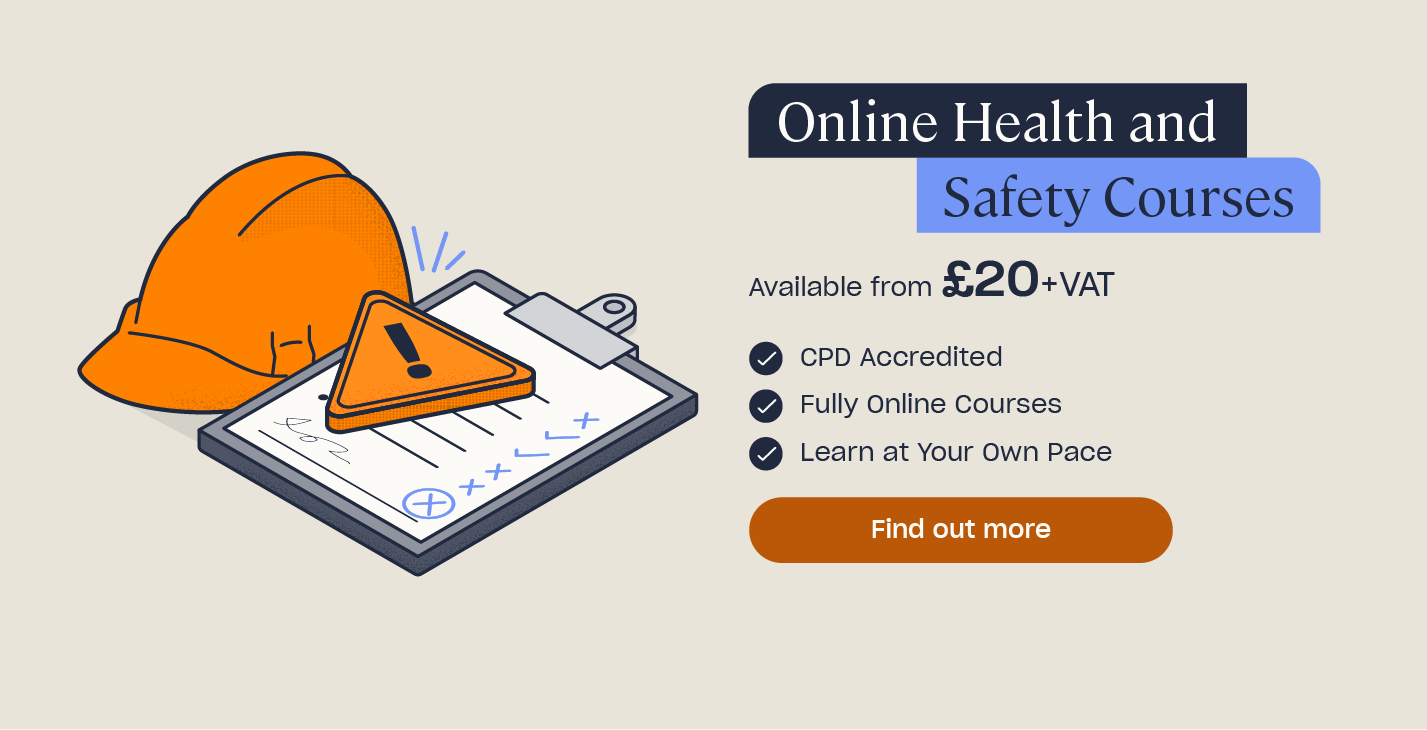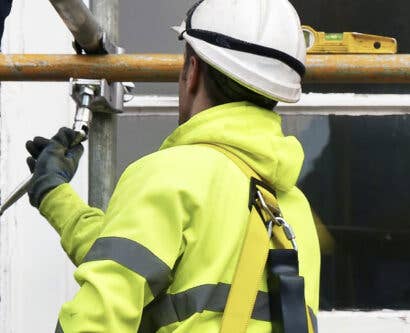How to Become an Electrician
The demand for electricians in the UK is predicted to increase, with the number of job vacancies on the rise. The UK Trade Skills Index 2023 found a concerning skills gap within the construction and trades sector. To keep up with this demand, they estimate that almost a million new workers are needed, including a significant number of qualified electricians. This makes it a great time to pursue a popular profession in an industry where there are opportunities to work for different types of businesses, flexibility to work self-employed or as part of a team, a good salary and you don’t need to have a degree.
This article will explain the various responsibilities an electrician may have, how to become an electrician and the qualifications required, the skills you need to have and how to develop your career as an electrician.

What Does an Electrician Do?
Electricians work with any equipment, wire or machine that uses energy. They install, inspect, test and repair electrical equipment to ensure that it works correctly and safely.
On a daily basis, and depending on what type of electrician you are, you may be responsible for:
- Installing wires, sockets and switches in properties.
- Carrying out the necessary checks of electrical systems to ensure they’re safe and working efficiently.
- Designing electrical and lighting plans for new properties.
- Installing, checking or repairing street lighting and traffic management systems.
- Rewiring residential buildings and other properties.
- Constructing and installing control panels.
- Carrying out repairs to electric machines.
Depending on your specific duties, you may work at a client’s home, offices, schools, shops, other buildings, on a construction site or outside, if involved with traffic management systems or street lighting. You may work alongside others, carry out lone working, work in confined spaces or work at height. To ensure you are kept safe and healthy, you may need to wear personal protective equipment. The working hours can vary, but are typically between 30 and 40 hours a week. There are different types of electricians and so you need to understand which position you would like to pursue.

What Qualifications Does an Electrician Need?
To develop a career as an electrician, you can take several different routes. You may be eligible for courses at colleges or those offered by other training providers. Alternatively, you could learn on the job through an apprenticeship which combines practical work experience with classroom style learning. If you have transferable skills, such as experience working in construction and trades, you could retrain as an electrician. Note that if you want to become more specialised as an electrician, you will need to undergo additional training and, in some cases, gain further qualifications.
You will likely have better job and earning prospects if you follow an industry-approved training route to become a qualified electrician. As these courses are of a high standard, completing them shows that you meet these standards and are skilled. Examples of industry-improved training includes training courses offered by City & Guilds, EAL and apprenticeships. It’s important that you carry out your own research into which route is the best for you to take.
College
To provide you with an introductory level of understanding and practical skills for the role of an electrician, you may want to take a college course. Alongside this, you must undergo practical training in a workplace to become a fully qualified electrician. On completion of a college course, you may find it supports you to secure an apprenticeship or trainee position to further your career prospects.
Courses available at a college or other training provider may include the following, as listed on the National Careers Service and Go Construct websites:
- Level 2 Diploma in Access to Building Services Engineering (Electrical)
- City & Guilds Level 2 Diploma in Building Services (Electrical Installation route) or EAL Level 2 Intermediate Diploma in Electrical Installation
- City & Guilds Level 3 Diploma in Building Services (Electrical Installation route) or EAL Level 3 Advanced Diploma in Electrical Installation
- T Level in Building Services Engineering for Construction
You will need to check the entry requirements for the course you want to take. Usually, you need to have:
- For a Level 2 course, 2 or more GCSEs at grades 9 to 3 (A* to D), or equivalent.
- For a Level 3 course, 4 or 5 GCSEs at grades 9 to 4 (A* to C), or equivalent.
- For a T Level course, 4 or 5 GCSEs at grades 9 to 4 (A* to C), or equivalent, including English and Maths.
You can find out more about college courses and T Levels through the links below:
On completion of a college course, you will need to work in the industry to become a fully qualified electrician. You will either need to find employment and join an apprenticeship programme, or find employment or become self-employed and take the City & Guilds or EAL’s Level 3 NVQ Diploma in Installing Electrotechnical Systems & Equipment (Buildings, Structures & the Environment). Whichever route you take, you must then pass the AM2 assessment to become fully qualified.
Apprenticeships
Electrician apprenticeships include a combination of on-the-job training and learning at a college or training provider, though they tend to involve more practical training than classroom-based learning. You will be fully employed by your company and work at least 30 hours per week.
Options include a domestic electrician advanced apprenticeship (level 3), an installation and maintenance electrician advanced apprenticeship (level 3) or an electrician apprenticeship with the armed forces. Both the domestic and the installation and maintenance apprenticeships are equivalent to A level and eligible for government funding. The domestic electrician apprenticeship will teach you how to install and maintain electrical services within a domestic setting, while the installation and maintenance electrician apprenticeship will teach you how to do so in industrial and commercial environments, as well as residential.
If you want to join the British Army and train as an electrician, you can do so as a Royal Engineer soldier. You will firstly undergo initial military training as a Junior or Regular Soldier for either 14 or 23 weeks. Following this, you will attend the Royal School of Military Engineering Regiment for 12 weeks and then finish with a 33 week course at the Royal School of Military Engineering. Similarly, the Royal Air Force offers the Level 3 Engineering Technician – Mechatronics Maintenance Technician (Electrical) apprenticeship. This teaches you how to design, build, service and repair a range of engineering products and services.
You usually need to have 5 GCSEs at grades 9 to 4 (A* to C), or equivalent, including English and Maths, for an advanced apprenticeship. If you want to gain your training in the British Army, you need to have GCSE grade 9 to 5 (or A to C) in Maths, GCSE grade 9 to 4 (or A to C) in English Language and one other subject. For the RAF’s apprenticeship, you need to have GCSE grade C/4 in English Language, Maths and an approved Science/Technology-based subject. Both the Army and the RAF require applicants to meet additional criteria. You must pass the basic physical fitness assessment to be eligible for the British Army’s apprenticeship. The RAF also requires applicants to pass a fitness test and the Defence Aptitude Assessment in addition.
To find out more about apprenticeships that are available near you, follow the links below:
- Gov.uk: Become an apprentice
- Gov.uk: Find an apprenticeship
- Apprentice Training Course – Domestic Electrician
- Apprenticeship Training Course – Installation and Maintenance Electrician
- Electrician – Royal Engineers
- Electrician – Royal Air Force
Essential Qualifications
To fully qualify as an electrician, there are some essential qualifications which you must hold. You need to complete the Achievement Measurement 2 (AM2) assessment which is an industry-recognised competence which proves your practical electrical skills. The test is administered by the National Electrotechnical Training (NET) and is usually the final component of your electrical qualification. You can find out more about the assessment on the NET’s website.
In addition, there are some criteria which you need to meet depending on your circumstances. If you want to work with electrical wiring it is essential that you have normal colour vision. You will have to pass a colour vision assessment test to verify this. If you are going to be carrying out work on a construction site, you may need to hold an Electrotechnical Certification Scheme (ECS) card. The card accredits your electrotechnical qualifications and experience.
Awareness Training
Before you decide to pursue a career as an electrician, it’s important that you understand what the job can involve and know that it is the career path you want to take. During your training to become an electrician, you may want to take an awareness level course to build on your practical knowledge. Awareness courses are also useful if you want to learn more about an industry.
Looking for a Course?
Our Electrical Safety Training online course is designed to give you an understanding of the main risks and necessary controls for the safe use of electricity at work. If you will be working with portable appliances, you may also benefit from High Speed Training’s Portable Appliance Testing (PAT) course.
Alongside electrical safety and PAT awareness training, you may find general health and safety training to be useful. We offer a range of online training courses that may be suitable for an electrician to improve their knowledge and skills alongside their practical training. Courses include:
- Health and Safety Training for Employees
- Working at Height
- Lone Working
- Working in Confined Spaces
- PUWER Training
- Lock Out/Tag Out
- Ladder Safety
- Manual Handling
- Workplace First Aid
What Skills Do You Need to be an Electrician?
Before pursuing this career, you should consider whether you will be a good fit for a career which can involve manual, demanding work and long hours. You need to have a range of skills to be successful as an electrician, including hard skills which are specific to the job role and gained through training, and soft skills which are relevant to various industries.

Hard Skills for Electricians
You need to have or be working to develop the following technical skills to be an electrician:
- Ability to use, maintain and repair electrical equipment, machinery and tools.
- Knowledge of engineering science, technology, design, building and construction.
- Specialist knowledge of your area of expertise. For example, understanding of specific equipment maintenance.
- Strong maths skills.
- Ability to work well with your hands.
- Good levels of physical fitness.
- Ability to complete basic computer-based tasks and use software packages.
You will develop many of these skills during practical training. However, for some, you may find it useful to take additional training to supplement this. For example, depending on the type of electrician you are training as, you may find Working at Height or PUWER Training awareness courses beneficial.
Soft Skills for Electricians
Alongside your technical capabilities, you also need to have certain soft skills to be a successful electrician. Examples of soft skills that make a good electrician include:
- Excellent attention to detail and ability to be thorough.
- Strong initiative.
- Analytical and problem-solving skills.
- Customer service skills.
- Strong verbal communication skills.
- Active listening.
- Confident working well independently and as part of a team.
- Adaptability to changes requested by clients or required by circumstances.
- Good time management.
Want to Learn More?
High Speed Training’s comprehensive catalogue of articles can help you to understand and develop your soft skills to become an effective electrician. You can learn about communicating effectively in What is Effective Communication in Construction? which is tailored to those working in the construction industry but will be useful for electricians in all sectors. Our How to Improve Active Listening in Communication article explains the benefits of listening with focused intent which can result in more effective interactions with colleagues and clients. You may also want to improve your time management skills with our One Week Time Management Plan: Three Famous Techniques article.
How to Get a Career as an Electrician
There are various routes that you can take to get a career as an electrician, including the options covered previously on apprenticeships, college courses and other qualifications. The route you take will depend on your circumstances and what will be best for you.
If you are a school leaver and have no or limited work experience, you may want to start with taking a relevant course at a college or other training provider. In some circumstances, you may be able to get a job as an electrician’s mate, trainee or assistant without much prior experience. You will need to have GCSEs, including English and Maths, and be able to prove solid practical skills. If you take this route, your employer may then support you with training to become a fully qualified electrician.
If you are looking to change careers, you could retrain as an electrician if you have previously worked in a similar industry and have experience and relevant qualifications. For example, if you were employed as an engineer. If you have relevant experience, you may be accepted for an electrician role offered by an employer. The level you are able to enter the profession at will depend on your experience and background.
If you already work as an electrician and have done so for at least five years but don’t hold a Level 3 electrician qualification, you may be able to get your skills and experience formally recognised to the industry Level 3 benchmark through the Experienced Worker Assessment.
There are many opportunities for progression as an electrician or to use the transferable skills gained for a different job in the sector. You could become a site or project manager, or may choose to specialise in a particular area, such as training as an electrical designer. You may want to set up your own business or become self-employed as a subcontractor or as a tutor.
If you would like to work in the construction and trades industry and want to find out more about the other careers available, have a look at this guide to Careers in the Construction Industry.
Electricians are in high demand in the UK, making it a good time to consider this as a career to pursue. To meet this demand, there is a range of support available to help you understand which route is best for you to take to qualify as an electrician and the different specialisms you can follow. If you have the skills required, you can develop a fulfilling and flexible career as an electrician.
Further Resources:
- Electrical Safety Guidance for Working on Construction Sites
- Electrical Safety Quiz
- Electrical Safety Symbols & Signs – What Do They Mean?
- What is Asbestos?
- How to Find the Right Career for Me
- How to Become an Engineer











